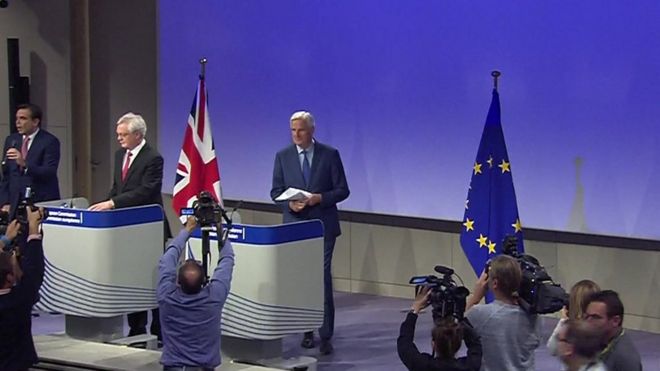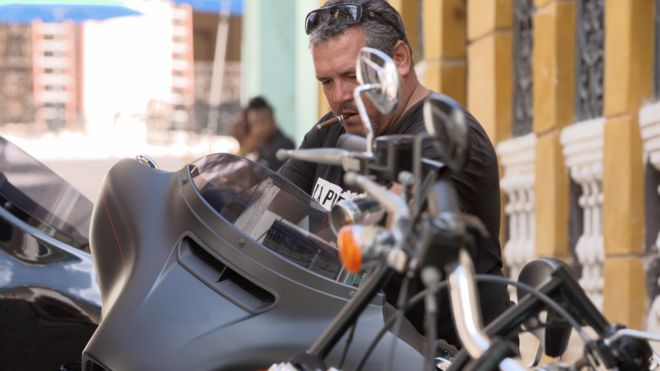Older people love to gripe about
the entitled, lazy millennial generation. But it's nothing new – by
delving into the archives, we found plenty of parallels stretching back
2,000 years.
Millennials may be the world’s most hated generation
– at the moment. But is disdain towards youth a new dynamic? By delving
into the archives, we found that older people have been griping about
young people for more than 2,000 years.
Far more surprising is
that, throughout the centuries, their criticisms have been remarkably
similar. From complaints that the next generation are both too cautious
and yet downright dangerous, too worried about the world and at the same
time too self-absorbed to care, here are some of our favourites.
They’re lazy…
“Millennials are lazy and think basic tasks are beneath them.”
A generation with a huge sense of entitlement, Daily Mail, 2017
“Many
[young people] were so pampered nowadays that they had forgotten that
there was such a thing as walking, and they made automatically for the
buses… unless they did something, the future for walking was very poor
indeed.”
Scottish Rights of Way: More Young People Should Use Them, Falkirk Herald, 1951
…self-obsessed…
“They’re
out-of-touch hipsters who spend too much on coffee and too little on
facial hair care. Many are spoiled, entitled, or both.”
A Boss’s Guide to Managing Bratty Millennials, Momzette, 2016
“Whither
are the manly vigour and athletic appearance of our forefathers flown?
Can these be their legitimate heirs? Surely, no; a race of effeminate,
self-admiring, emaciated fribbles can never have descended in a direct
line from the heroes of Potiers and Agincourt...”
Letter in Town and Country magazine republished in Paris Fashion: A Cultural History, 1771
...and, really, just awful.
“The
tragic truth is that America’s millennials are a bunch of
phone-addicted, selfie-obsessed, hashtagging, snapchatting,
kale-munching, twerking, lazy, whining, ill-informed, politically
correct, cossetted narcissists who find absolutely everything mortally
offensive and believe there are 165 ways to sexually identify.”
Memo to millennials, that awful feeling you’ve got is called losing, Daily Mail, 2016
“We
defy anyone who goes about with his eyes open to deny that there is, as
never before, an attitude on the part of young folk which is best
described as grossly thoughtless, rude, and utterly selfish.”
The Conduct of Young People, Hull Daily Mail, 1925
They think they know best…
“My huge generalities touch on… their insistence that they are right despite the overwhelming proof that suggests they are not…”
Bret Easton Ellis in ‘Generation Wuss’, Vanity Fair, 2014
“They think they know everything, and are always quite sure about it.”
Rhetoric, Aristotle, 4th Century BC
But they’re also too cautious.
“Millennials
have been called the most cautious generation – the first to grow up
with car seats and bike helmets, the first not allowed to walk to school
or go to the playground alone.”
‘There really isn’t anything magical about it’: Why more millennials are avoiding sex, Washington Post, 2016
“It’s
an irony, but so many of us are a cautious, nervous, conservative crew
that some of the elders who five years ago feared that we might come
trooping home full of foreign radical ideas are now afraid that the
opposite might be too true, and that we could be lacking some of the old
American gambling spirit and enterprise.”
The Care and Handling of a Heritage: One of the “scared-rabbit” generation reassures wild-eyed elders about future, Life, 1950
And yet too confident.
“Many of the millennials in today's workforce have more confidence than they do competence.”
Millennials: ‘Their overconfidence at work can look delusional’, Irish Independent, 2017
“[Young
people] are high-minded because they have not yet been humbled by life,
nor have they experienced the force of circumstances.”
Rhetoric, Aristotle, 4th Century BC
Their expectations are too high.
“The
prevailing narrative about members of Generation Y… is that they are a
fleet of job-hoppers who think they're above the grunt work of an
entry-level position; in other words, not the most desirable employees.”
‘The 40-hour weeks… I think it’s slowly killing you’, Irish Independent, 2017
“The
traditional yearning for a benevolent employer who can provide a job
for life also seems to be on the wane… In particular, they want to avoid
‘low-level jobs that aren’t keeping them intellectually challenged.’”
Meet Generation X, Financial Times, 1995
Really, they just complain too much.
“Whether
it’s jobs, property, or just the sheer towering unfairness of the
world, millennial complainants are everywhere, ready to give you a
rundown of everything their generation has been stiffed on. In the way
that we once had The Greatest Generation, we now have The Whiniest
Generation. But really, the only place they’ve been short-changed
compared to us Xers or even the Boomers is property.”
Crybaby millennials need to stop whinging and work hard like the rest of us, The Telegraph, 2015
“What
really distinguishes this generation from those before it is that it's
the first generation in American history to live so well and complain so
bitterly about it.”
The Boring Twenties, Washington Post, 1993
They spend way too much money – which is bad.
“When
I was trying to buy my first home, I wasn't buying smashed avocado for
$19 and four coffees at $4 each. We're at a point now where the
expectations of younger people are very, very high. They want to eat out
every day, they want travel to Europe every year.”
Australian mogul Tim Gurner on 60 Minutes Australia, 2017
“The beardless youth… does not foresee what is useful, squandering his money.”
Horace, 1st Century BC
But they’re not buying houses – also bad.
“Somebody
is buying houses in the United States – but it sure isn’t millennials.
Just ask their parents. They’ll be the ones worrying in the kitchen
about whether their little darlings will ever leave.”
Millennials aren’t buying homes right now: What if they never do?, The Guardian, 2016
“‘We
want to get married, but there is nowhere we can set up a house of our
own. It is either a case of waiting goodness knows how long, and we've
waited all the war, or, going to live with Mary's mother.’ How often is a
similar remark heard in those days, for it is the problem that young
people all over the country have to face. Thousands of young fellows
have come home from the war intent on setting up a home with the girl of
their heart only to find that there are no homes to be had… Many men,
of course, have not waited for houses, but have got married and gone
into rooms or to live with relatives, but neither course can be
considered very satisfactory.”
Nowhere to Set Up House, Dundee Courier, 1920
They want to live like adolescents forever.
“As
more millennials delay moving out of their parents' home, getting a job
and are paying their own bills, the age of adulthood has been pushed
back. One expert suggests that millennials stay children for so long
because they have been coddled by their parents and have had things 'too
good'.”
Will they ever grow up?, Daily Mail, 2017
“A
few [35-year-old friends] just now are leaving their parents’ nest.
Many friends are getting married or having a baby for the first time.
They aren’t switching occupations, because they have finally landed a
‘meaningful’ career – perhaps after a decade of hopscotching jobs in
search of an identity. They’re doing the kinds of things our society
used to expect from 25-year-olds.”
Not Ready for Middle Age at 35, Wall Street Journal, 1984
Modern technology has made them useless at decision-making…
“The
endless choices millennials face have also proven paralyzing. They’re
the constantly-swiping-right generation. It’s always on to the next
thing.”
They can’t even: Why millennials are the ‘anxious generation’, New York Post, 2016
“They
have trouble making decisions. They would rather hike in the Himalayas
than climb a corporate ladder. They have few heroes, no anthems, no
style to call their own. They crave entertainment, but their attention
span is as short as one zap of a TV dial.”
Proceeding with Caution, Time, 2001
…as well as impossibly self-absorbed.
“…Emory
University English professor Mark Bauerlein demonstrates how the
internet is making young people increasingly ignorant about almost
everything except online video games and the narcissism of self-authored
internet content… The more skilled kids become in using the tools of
the digital revolution, he demonstrates, the more ignorant they become
about the objective world around them.”
Digitally Addicted Kids Threaten to Return Civilisation to the Dark Ages, The Independent, 2008
“Cinemas
and motor cars were blamed for a flagging interest among young people
in present-day politics by ex-Provost JK Rutherford… [He] said he had
been told by people in different political parties that it was almost
impossible to get an audience for political meetings. There were, of
course, many distractions such as the cinema…”
Young People and Politics, Kirkintilloch Herald, 1938
They’re ruining religion…
“…almost
every major branch of Christianity in the United States has lost a
significant number of members, Pew found, mainly because millennials are
leaving the fold… The alacrity of their exodus surprises even seasoned
experts."
Millennials leaving church in droves, study finds, CNN, 2015
“How
to bring young people into membership of the Church was a pressing
problem raised at a meeting… Sunday School teachers in the audience had
found that children were apt to leave Sunday School when they had
completed their day school education. They were not following on into
the church.”
Why Do Young People Neglect Religion?, Shield Daily News, 1947
And sport…
“The
emergence of the millennial generation poses an existential threat to
the future of the National Football League… Concerned about the safety
of their ‘special’ children, the parents of many millennials have
demonstrated a strikingly fearful reaction to a series of reports about
the devastating impact playing in the NFL has had on many former
players.”
Millennial generation could kill the NFL, The Christian Science Monitor, 2012
“…in
youth clubs were young people who would not take part in boxing,
wrestling or similar exercises which did not appeal to them. The ‘tough
guy’ of the films made some appeal but when it came to something that
led to physical strain or risk they would not take it.”
Young People Who Spend Too Much, Dundee Evening Telegraph, 1945
And even the written word.
“Is
it just me, or are student competencies like basic writing skills in
serious peril today?… Teachers have been reporting anecdotally that even
compared to five years ago, many are seeing declines in vocabulary,
grammar, writing, and analysis.”
Why Can’t College Students Write Anymore?, Psychology Today, 2014
“The
Chairman alluding to the problem of young people and their English said
his experience was that many did not seem able to express or convey to
other people what they meant. They could not put their meaning into
words, and found the same difficulty when it came to writing.”
Unable to Express Thoughts: Failing of Modern Young People, Gloucester Citizen, 1936
Really, it’s the fault of the parents…
“If
millennials are self-absorbed little monsters who expect the world to
come to them and for their parents to clean up their rooms well into
their 20s, we’ve got no one to blame but ourselves — especially the moms
and dads among us.”
Millennials Are Selfish and Entitled, and Helicopter Parents Are to Blame, Time, 2014
“Parents
themselves were often the cause of many difficulties. They frequently
failed in their obvious duty to teach self-control and discipline to
their own children.”
Problems of Young People, Leeds Mercury, 1938
And they’re unlike anything seen before.
“They
are the most threatening and exciting generation since the baby boomers
brought about social revolution, not because they're trying to take
over the Establishment but because they're growing up without one.”
Millennials: The Me Me Me Generation, Time, 2013
“Probably
there is no period in history in which young people have given such
emphatic utterance to a tendency to reject that which is old and to wish
for that which is new.”
Young People Drinking More, Portsmouth Evening News, 1936
Except that they’re not that different, after all. And they’re actually pretty OK.
“And
while [millennials] vary internally as much as any age cohort, I’ve
generally been struck by the disconnect between the way they’re
portrayed in the media and the way they go about their business. From
what I’ve seen, they work harder than my cohort did, and for less
payoff. (We could say the same about ourselves, relative to Boomers.)
They’re more polite than I remember my own group being at that age. Yes,
they’re always checking their phones, but so are we. Most of them are
juggling jobs, classes, and family obligations, along with the
relationship drama that comes with that age.”
In Defence of Millennials, Inside Higher Ed, 2017
“He
felt that the people who were giving that kind of charge, that sweeping
condemnation, were generally out of touch with the young people… ‘I
think that if we knew the boys and girls — and I am thinking
particularly tonight the young people of Britain — of those modern
times, we should feel that after all they are very much like ourselves.
They think very much like ourselves only their expression of their
thinking is a little bit different.’”
Modern Young People: ‘A Glorious Lot’, Cornishman, 1934
To comment on this story or anything else you have seen on BBC Capital, please head over to our Facebook page or message us on Twitter.
If you liked this story, sign up for the weekly bbc.com features newsletter called
"If You Only Read 6 Things This Week". A handpicked selection of
stories from BBC Future, Culture, Capital and Travel, delivered to your
inbox every Friday.
Originally published on http://www.bbc.com/capital/story/20171003-proof-that-people-have-always-complained-about-young-adults








 Ernesto Guevara shares his father's love of motorbikes and cigars
Ernesto Guevara shares his father's love of motorbikes and cigars